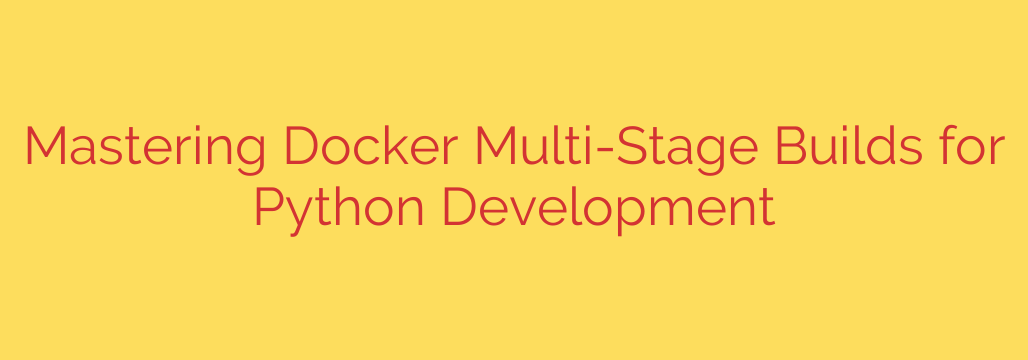
Building efficient and secure Docker images for Python applications can be challenging. Traditional Dockerfiles often lead to large images containing build tools, development dependencies, and potentially sensitive files not needed at runtime. This impacts deployment speed, resource usage, and most importantly, security. A cleaner, more performant approach is essential, and that’s where multi-stage builds become invaluable.
Multi-stage builds allow you to use multiple FROM statements in your Dockerfile. Each FROM instruction starts a new build stage, and you can selectively copy artifacts from one stage to another. The final image is the one produced by the last stage, containing only the necessary runtime components. This powerful technique is the correct way to significantly reduce the image size of your Python applications.
Here’s how it typically works for Python: You define an initial build stage that uses a more feature-rich base image (like python:3.x) where you can install all your project dependencies using pip, potentially build wheels, and run tests. This stage has everything it needs to prepare your application for deployment.
In a subsequent, separate runtime stage, you start from a much smaller, minimal base image (like python:3.x-slim or even python:3.x-alpine). You then copy only the essential files from the build stage – specifically, your application code and the installed dependencies – into this minimal image. Crucially, none of the build tools, compilers, or temporary files from the first stage are carried over.
The benefits are substantial. You gain dramatically reduced image size, leading to faster pulls, quicker deployments, and lower storage costs. Security is enhanced because the final image contains a minimal attack surface – development tools and unnecessary libraries are excluded. Build performance can also improve through better layer caching for independent stages. It ensures your production environment is clean, lean, and contains only what is absolutely needed to run your application. Adopting multi-stage builds is a fundamental step towards mastering Docker for professional Python development, making your containerization process more robust, efficient, and secure.
Source: https://collabnix.com/docker-multi-stage-builds-for-python-developers-a-complete-guide/








